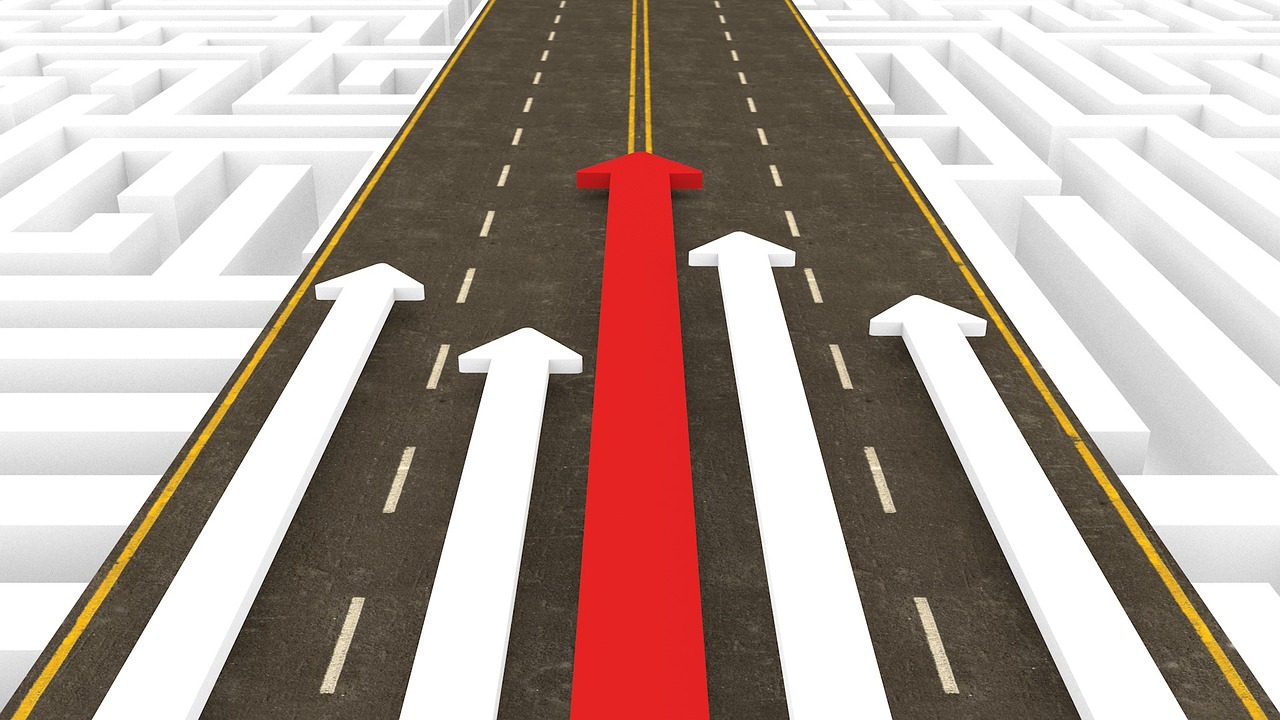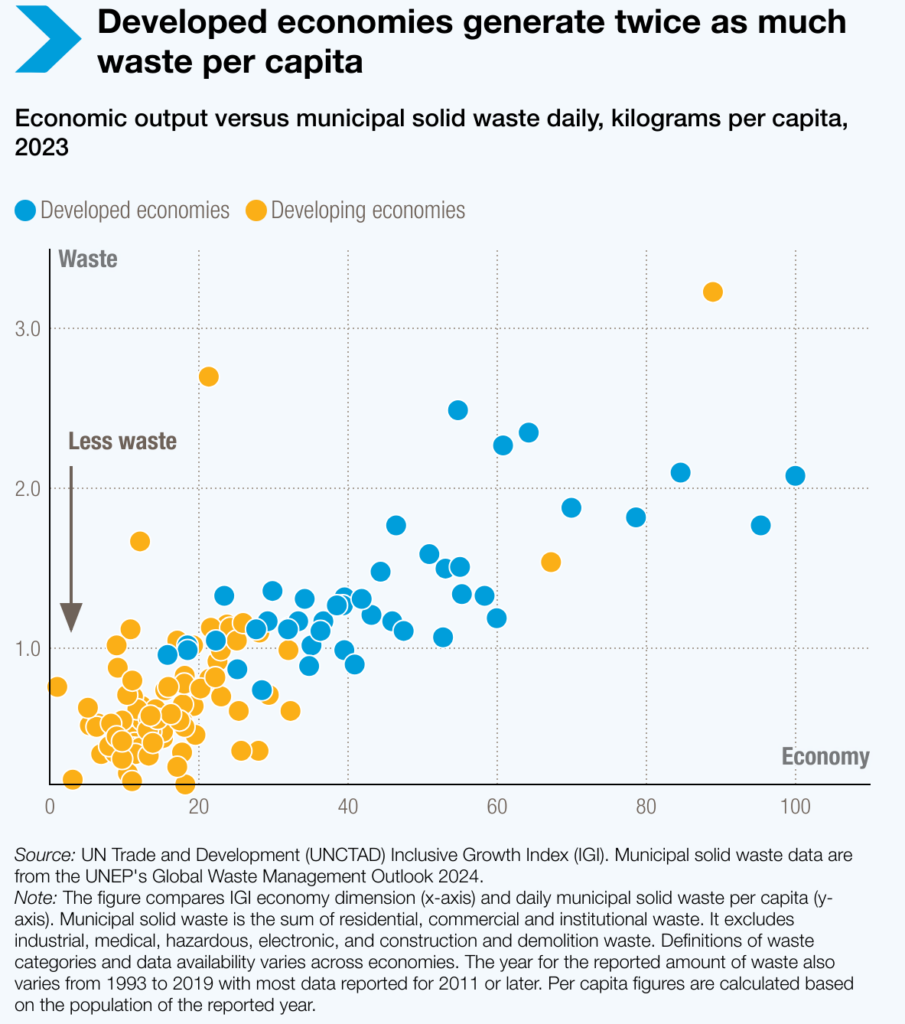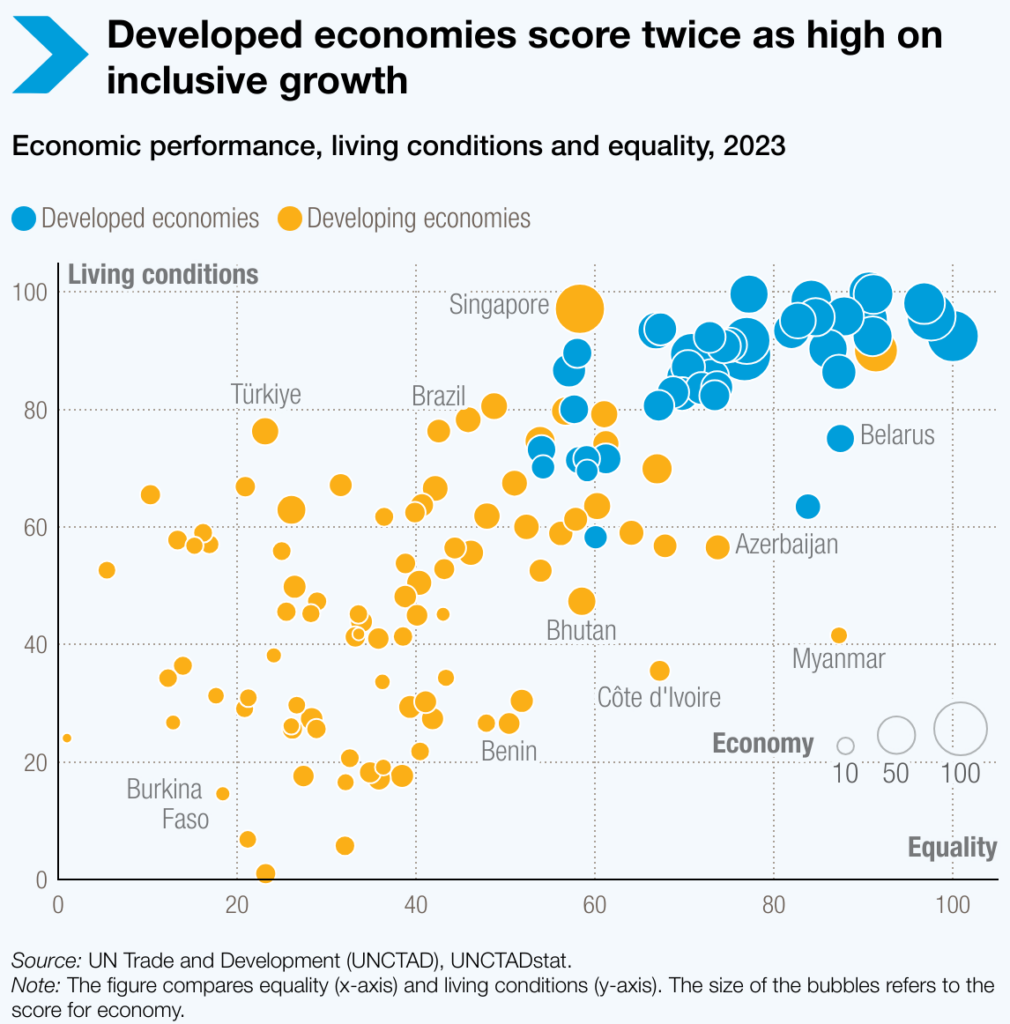
Geneva: For almost eight decades, gross domestic product (GDP) has served as the primary indicator of economic success. However, an increase in economic output does not necessarily ensure that the advantages are distributed equitably or that growth is sustainable.
Arguing that a higher GDP does not automatically ensure equitable benefits or sustainable development, the United Nations Conference on Trade and Development (UNCTAD) stated it has developed the Inclusive Growth Index (IGI), which integrates GDP with additional metrics related to living standards, equality, and environmental health to provide a more comprehensive understanding of progress.
Introduced in 2022 and enhanced this year, the index now encompasses 134 countries, accounting for 95% of the global population and 97% of worldwide GDP. Recent data released on March 10, 2025, indicates that while significant inequalities remain, some gaps are beginning to close, and distinctions are becoming less pronounced.
The index underscores the critical necessity to sever the connection between economic expansion and the consumption of resources and waste generation. Developed nations produce approximately double the amount of waste per person compared to their developing counterparts.
Take Luxembourg, for instance, which ranks high in economic performance, generating around 760 kilograms of municipal solid waste per individual each year, equating to more than 2 kilograms daily. In stark contrast, the Lao People’s Democratic Republic, classified as a least developed country, produces only 50 kilograms per person annually, or roughly 0.15 kilograms each day, which is comparable to the weight of an apple.
This indicates that an average individual in Luxembourg creates over 15 times the waste of someone in Lao PDR. Generally, the lowest per capita waste rates are found in the least developed countries and small island developing states. Although economic growth and urbanization typically result in increased waste, Japan and the Republic of Korea (South Korea) demonstrate that effective waste management strategies can be successfully implemented.
Environmental sustainability varies widely across regions
Developed nations are at the forefront of sustainability, benefiting from robust policies and advanced infrastructure. Nonetheless, their performance scores indicate considerable variation within this group.
On the other hand, several developing countries are making notable progress. Singapore (66.5), Panama (54.4), and the Dominican Republic (52.3) are narrowing the gap with leaders like Ireland (71.1), Denmark (70.0), and the United Kingdom (68.0), especially in areas such as energy efficiency and carbon management.
At the same time, the Global South exhibits regional disparities that highlight different challenges. Latin America and the Caribbean, with a median score of 41.8, slightly outpace other developing regions but face obstacles due to insufficient investments in green infrastructure and a heavy dependence on fossil fuels. Africa (40.2) presents a mixed picture, with some nations making strides while others lag due to inconsistent policies and limited resources. Meanwhile, Asia and Oceania (30.8) encounter significant hurdles in achieving sustainability.
In general, countries with more advanced economies tend to experience more inclusive growth. On average, developed nations achieve nearly double the scores of their developing counterparts on the index. Leading the way are Luxembourg, Norway, and Denmark, with only two developing nations—Singapore and the United Arab Emirates (UAE)—making it into the top 30.
However, a closer examination reveals that several developing economies are making significant strides in narrowing the gaps. For instance, Singapore excels in living conditions, boasting a score of 97.1, which surpasses many developed nations. Additionally, countries like Chile, China, Thailand, the UAE, and Uruguay all achieve scores above 80, positioning them much closer to the median of developed economies (89.3) compared to the Global South’s median of 46.4.
When it comes to equality, developing nations such as the UAE (91.4), Belarus (87.4), Azerbaijan (73.7), and China (71.4) either exceed or match the median score of developed economies (73.5), significantly outpacing the developing economies’ median of 37.4. The equality aspect assesses how fairly opportunities and benefits are distributed among a country’s population, particularly focusing on whether various groups, especially women and youth, have equal access to resources, employment, and decision-making roles. This evaluation is based on ten indicators that encompass income, poverty, education, employment, and political representation.
– global bihari bureau






